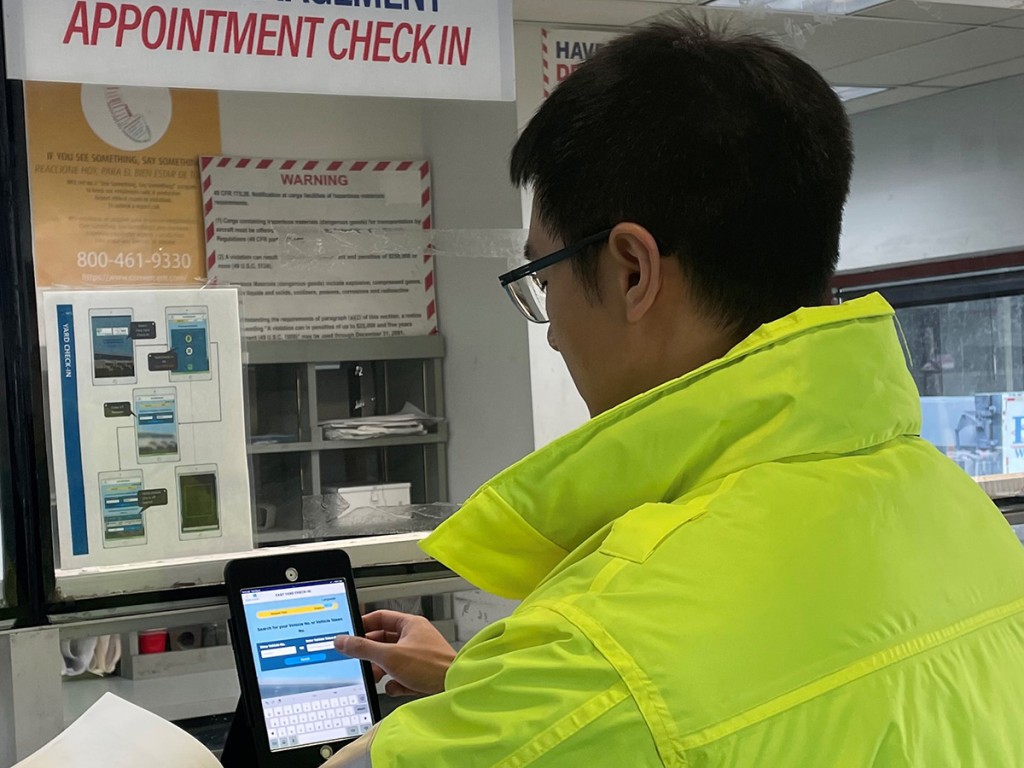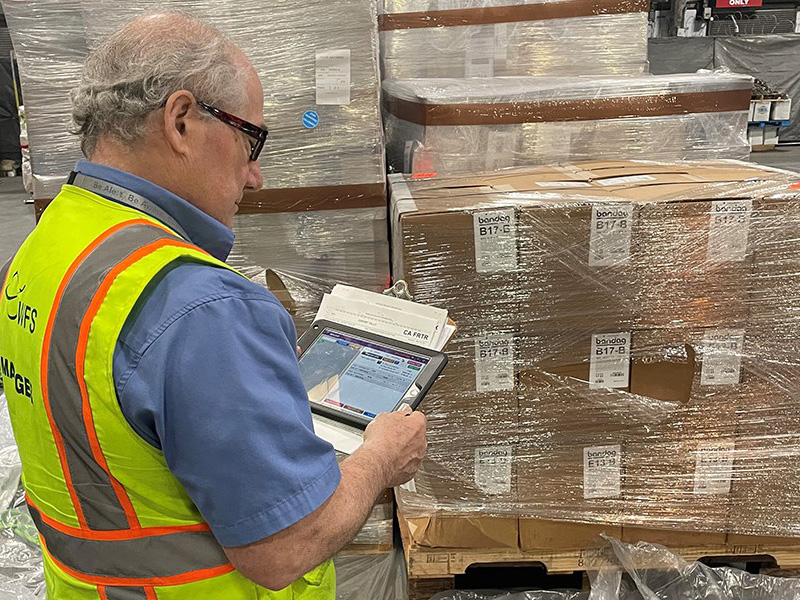WFS rolls out new dock management system to reduce truck waiting times in North America
Jun 23, 2023
Worldwide Flight Services (WFS), a Member of the SATS Group, has begun rolling out a new Dock Management System in North America, which has already reduced truck waiting times at its operations in New York JFK by more than 20%.
The solution is another feature of WFS’ in-house developed ePic Enterprise Solution, which is now operational at 52 WFS airport stations across the US. Epic has been designed ‘by cargo people for cargo people’ as a unifying e-business platform that enables collaboration and simplified communication within the cargo community stakeholders: shippers, freight forwarders, truckers, airlines, ground handling agents, consignees, and regulatory bodies.
The new Dock Management System will be implemented across WFS’ major airport locations in North America over the next 12 months, with Atlanta, Miami, and Boston next in line to adopt the solution. Trucking companies, consignees, and forwarders will be able to create their own slot booking for cargo drop-off or recovery at WFS stations, ensuring better optimisation of truck yards and alleviating congestion.
It is one of five new features accessible via the ePic platform. Other systems improvements include the addition of:
Warehouse Progress Monitoring - real-time KPIs, using live flight data from Flightaware to track arrival and departure information and the breakdown and build-up of cargo to meet customers’ Service Level Agreements (SLAs);
Integrated Scale - iPads in WFS’ warehouse operations are being connected to each weigh scale in its facilities to enter shipment weights automatically into the system, eliminating potential errors involved in manual processes. The new solution has already been fitted to 60% of the scales in WFS’ cargo stations in the US;
In conjunction with airline partners, WFS is rolling out ICS2 integration and functionality to assist with compliance to the incoming EU Customs regulations. Intuitive inhibitors are being introduced to ensure that ‘Held’ shipments are not loaded erroneously. This is supported by enhanced reporting for ease of status verification and inventory, as well as color-coded markings within the agents’ working screens, clearly defining shipment status;
Barcode integration - barcode reading applications installed in ePic will support installations of the RAFT Fully Automated Pallet Storage System, initially at New York JFK. This helps the system to quickly and accurately read and inventory cargo for input from the warehouse and dispersal to delivery agents. Ultimately, this is expected to allow additional functionality, including tracking export cargo acceptance and movement through the warehouse.

“For WFS in North America, ePic is ahead of other handling software because it is constantly evolving based on expertise from the field. We have a process to continually look at requests from within our business, which can come from Warehouse Supervisors or Office Agents, and we prioritize them. The improvements we make are driven by users. And, the fact that ePic is designed to be quite a simple system, means building APIs is very quick and easy, which is leading airline customers to ask us to implement it within their own locations because they see the efficiencies where we work with them,” said Shawnpaul Booth, Vice President Cargo, NOAM, at WFS.
Using ePic, WFS has been able to automate or eliminate 38 steps in the import/export cargo handling process.
ePic allows WFS to use a single system to handle multiple airline customers in multiple facilities using one centralised solution, simplifying operational processes, training requirements, and maximizing efficiencies. It also incorporates import and export cargo and flight management, office and warehouse functions to communicate every cargo movement in real-time, and integrated eScreening to ensure Federal Cargo Screening requirements are met and documented. CargoiQ integration also connects cargo and data through live updates of air waybill (AWB) status through standard IATA messaging.
It also encompasses a customer service portal and cash collection and billing.
“Operational Excellence is at the heart of WFS’ customer commitment, and ePic drives this for our North American business handling more than 2.48bn kilos and over 6.600 flights per annum. It is giving a level of transparency and visibility our customers value, and it gives WFS a big advantage in the handling market. We will absolutely continue to look to automate or eliminate more cargo processes because we have fast, first-hand insight into what works and what doesn’t,” Shawnpaul Booth added.
Similar Stories

Silk Way AFEZCO and FF Construction collaborate to shape the future of Silk Way Cargo Village
View Article
CPaT announces new contract with Romanian based airline, Legend Airlines
View ArticleSenpex marks a breakthrough year in 2024 with record growth and expansion in last mile delivery
Senpex Technologies, a trailblazer in last-mile delivery and logistics, is proud to announce a transformative year marked by record-breaking growth, groundbreaking innovations, and strategic expansion.
View ArticleJAS Worldwide signs SPA with International Airfreight Associates B.V.
JAS Worldwide, a global leader in logistics and supply chain solutions, and International Airfreight Associates (IAA) B.V., a prominent provider of comprehensive Air and Ocean freight services headquartered in the…
View Article
LATAM is once again part of the Dow Jones Sustainability Index
View Article
Aeromexico now connects Miami with Cancun
View ArticleGet the most up-to-date trending news!
SubscribeIndustry updates and weekly newsletter direct to your inbox!





